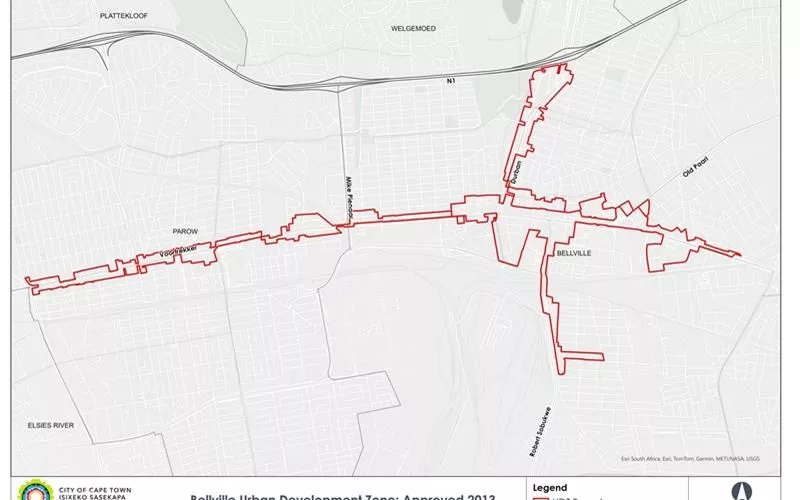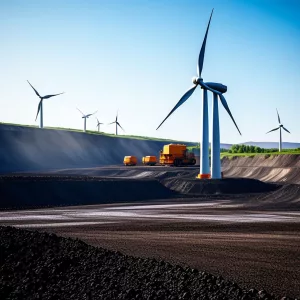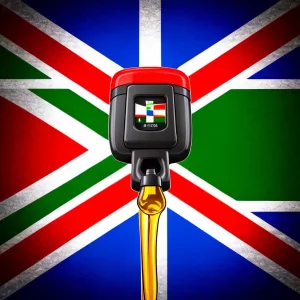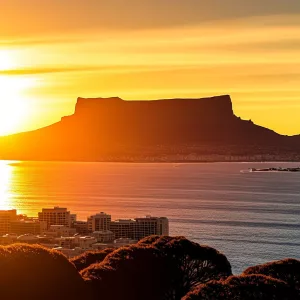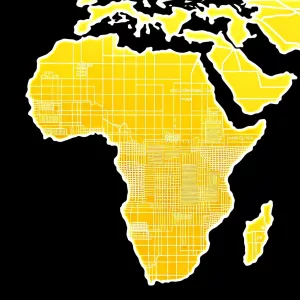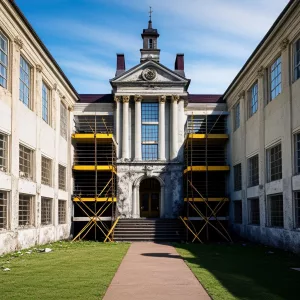Cape Town’s Urban Development Zone (UDZ) is a clever tax program that encourages people and companies to fix up old buildings and build new ones in certain parts of the city. By offering big tax breaks, it attracts private investors who bring new jobs, homes, and businesses, making neighborhoods lively and safe again. Walking downtown, you can see shiny new buildings standing proudly beside beautifully restored old ones, all thanks to this smart partnership between the city and developers. The UDZ has helped Cape Town grow stronger, turning quiet, rundown streets into buzzing centers full of life and opportunity.
Sixty60 is changing the way South Africans shop for groceries with its fast and easy delivery service. Customers can order online and get their groceries delivered to their door at instore prices in just 60 minutes! After a successful start in certain areas, Sixty60 is expanding to more locations, bringing its convenience to even more people. This service not only saves time but also helps families enjoy their lives more without the hassle of grocery shopping. With Sixty60, shopping for groceries is faster, easier, and more affordable than ever before!
South Africa’s Political Fundraising Landscape: Shifting Tides Ahead of Local Elections
South Africa’s political parties are raising a lot more money ahead of the local elections, with over R40 million collected in just three months. The DA leads by far, thanks to big donations from wealthy businesspeople, while the ANC depends mainly on one key partner, and ActionSA leans on its leader’s personal funds. New rules now allow bigger donations but also raise the bar on what must be publicly shared, stirring debates about transparency. This surge in fundraising means parties will have more cash to run bigger, flashier campaigns, making the upcoming elections more intense and competitive than ever before.
The Enduring Impact of Student Debt: NSFAS and the Struggle for Equity in South African Universities
NSFAS helps many South African students from poor backgrounds go to university by paying for their fees and living costs, giving them hope for a better future. But this support comes with heavy debt that can be hard to repay, causing stress and hardship for graduates and the system alike. Many students struggle daily with poor housing and delayed payments, making their studies even tougher. To keep helping more young people, NSFAS now works hard to collect repayments fairly, encouraging graduates to give back so others can also get a chance. This ongoing struggle shows the deep link between education, fairness, and the shared dreams of a nation.
Women’s leadership is lighting the way to Africa’s economic future by bringing governments, businesses, and communities together like a strong team. They focus on expanding money access, valuing care work, and stopping violence against women to build fair and lasting growth. Inspired by brave women from history, today’s leaders push for real change, where women are fully included in trade, innovation, and decisionmaking. Their courage and cooperation promise a brighter, stronger Africa where everyone can thrive.
South Africa is changing from coal to clean energy in a way that cares for its people and communities. Through special training centers and education programs, workers are learning new green skills like fixing solar panels and wind turbines. This big change aims to create good jobs, help regions hit hard by coal job losses, and include everyone especially women and young people. With teamwork between the government, businesses, and global partners, South Africa is building a fair, green future where no one is left behind.
South Africa’s future economic empowerment aims to help people based on need and talent, not just race. Instead of strict racial quotas, new ideas focus on teaching skills, fixing tough laws that block jobs, and fighting poverty directly. This fresh approach wants to open doors for everyone who struggles, making it easier to start businesses and grow the economy. By learning from the past and focusing on ability and fairness, South Africa hopes to build a stronger, fairer future for all its people.
South Africa’s tax authority, SARS, is now using smart technology like artificial intelligence to track the money social media influencers earn from cash payments to freebies like sponsored trips or products. Influencers must report all their income or face fines, as digital work is no longer invisible to tax laws. This big change pushes many creators, who often start as hobbyists, to learn how to manage their new business and taxes. It shows that online fame comes with real responsibilities, blending fun creativity with the rules everyone must follow.
Jannie Mouton’s Bold Blueprint: Curro, Philanthropy, and the Future of South African Education
Jannie Mouton plans to buy Curro Holdings and turn it into a nonprofit school network to make quality education more affordable and accessible in South Africa. With a massive R7.2 billion deal, his foundation aims to offer more scholarships and improve school facilities. This bold move could change South African private education forever, shifting the focus from profit to helping more children learn and grow. Mouton’s vision is about building a lasting legacy that opens doors for thousands of students who might otherwise be left out.
In September 2025, South Africans can expect fuel prices to drop thanks to a stronger rand and cheaper global oil. Petrol, diesel, and paraffin will all become a bit more affordable, offering relief to drivers and families struggling with costs. This rare good news brings hope to commuters, taxi operators, and businesses, easing budgets and brightening the mood across the country. For now, the roads buzz with a quiet optimism as the cost of filling up gets a little lighter.
South Africa’s electricity prices are rising because the energy regulator, Nersa, made big mistakes in calculating how much money Eskom needs to run the power system. This error left Eskom short by over R100 billion, forcing a legal battle and a settlement that pushed tariffs up by nearly 9% a year. These higher costs hit families and businesses hard, making electricity less affordable and sparking frustration across the country. The problem reveals deeper issues in South Africa’s power system, showing how crucial it is to fix mistakes quickly and rebuild trust for a brighter energy future.
Charting a New Path for NSFAS: Leadership, Reform, and the Drive for Educational Access
NSFAS helps South African students get money for college, especially those who can’t afford it. New leaders, like Dr. Karen Stander, are fixing past problems by being open, honest, and working closely with others. They are using technology to make things faster and easier, and changing rules to support more students fairly. Even though money is tight, NSFAS is finding ways to help more learners stay in school. Their goal is simple: make education possible for everyone who deserves it.
In 2025, Cape Town’s prime residential market shines bright as a rare gem, offering beautiful homes at affordable prices (€2,600/m²) with steady growth and limited supply. Nestled between stunning mountains and the ocean, the city attracts buyers who seek not just investment, but a vibrant lifestyle full of culture, safety, and nature. While other global cities face uncertainty, Cape Town remains stable and inviting, making it a top choice for people dreaming of both comfort and opportunity. The city’s charm and balanced market make it a place where life feels rich and full, drawing investors and residents alike.
African railways are changing from old colonial tools into powerful lifelines that connect countries and boost economies across the continent. New projects and reforms, like South Africa’s rail modernization and the African Continental Free Trade Area (AfCFTA), are helping railways support trade, jobs, and unity. These steel tracks are becoming symbols of hope, linking people and markets while building a greener, stronger Africa for the future.
The City of Cape Town helps small businesses grow by offering online events, mentorship, grants, and skills training. These efforts bring energy to the city’s streets, where local vendors and startups thrive. By mixing digital tools with realworld support, the city makes sure all entrepreneurs from busy cafes to tech innovators can join in. This creates a lively community where ideas spread, businesses grow, and the whole city moves forward together.
Starting in 2026, South African private schools must deregister from VAT, which means they face big new tax bills on their buildings and equipment even though they aren’t selling anything. This sudden cost could drain school savings, force fee hikes, delay improvements, or cut bursaries, putting pressure on their budgets and futures. While the government hopes the change simplifies taxes, many schools worry it threatens their ability to keep offering quality education and support to students. Now, school leaders are urgently planning how to protect their traditions and communities in this new, tough financial landscape.

